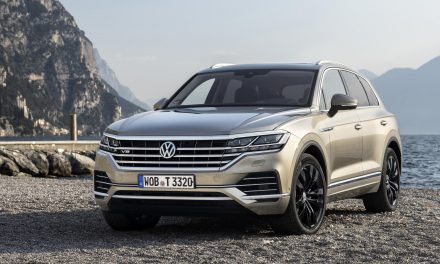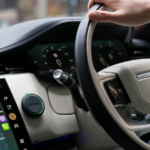Sound of silence is not for everyone
As 27% of UK pedestrians say the almost silent approach of an EV has taken them by surprise
New research by Venson Automotive Solutions reveals that over a quarter (27%) of pedestrians have recently been taken by surprise by the almost silent approach of a plug-in car while they were crossing the road, and almost half (47%) remain concerned about how quiet plug-ins are when in transit.
This is despite the introduction of EU regulations on electric vehicle (EV) noise levels, which have required the use of an Acoustic Vehicle Alerting System[i] (AVVAS) since 2019. Venson says that without tighter regulation and greater consistency on the artificial noises a plug-in vehicle makes, the safety of vulnerable road users could continue to be put at risk.
As a recently published study[ii] finds that pedestrians may be twice as likely to be hit by an EV or hybrid car compared to petrol or diesel vehicles. In a vote for common-sense, 49% of road users surveyed by Venson said they think the running noise of an EV should be a standard one that all manufacturers must use.
However, 37% of those surveyed feel that car buyers should be able to determine the noise their EV makes in transit, choosing from a predetermined list of regulated options available from the manufacturer. Only 13% believed that manufacturers should be able to have their own standard but regulated noise, that differentiates their brand.
Despite the phasing out of Internal Combustion Engine (ICE) vehicles, road users are keen to maintain the roar of a petrol or diesel engine on UK roads. Currently, when an EV is being driven at low speed or in reverse, a noise automatically starts; in type they can vary from clearly artificial bells and chimes to those that mimic engine sounds or tyres moving over gravel. 26% of road users would prefer EVs to have a noise that mimics a traditional ICE engine, the next most popular choice was a continuous low decibel sound, which 21% of road users would choose.
Again, road users applied rational thinking when it comes to the sound they want an EV horn to make, with 65% agreeing that the horn should make the same sound as an ICE vehicle horn. Bearing in mind that a horn is used to warn of a road user’s presence or avoid a potential accident, it was perplexing to see that 23% would prefer an animal or musical instrument sound.
Simon Staton, Client Management Director for Venson Automotive Solutions comments, “It is easy to see how the stealth-like approach of some EVs, coupled with the varying beeps and chimes of these vehicles when driven in reverse, can cause confusion to some of the UKs more vulnerable pedestrians, like children or those who are hard of hearing.
“Of course, the integration of AVAS into hybrid vehicles back in 2019 was a tremendously positive step, but as our research reveals, 27% of road users have narrowly avoided an incident with an EV so more needs to be done. When people rely on sound to judge the presence, location, and speed of vehicles to protect themselves from harm, easily recognised sounds that can be clearly heard are voted the best.”



















